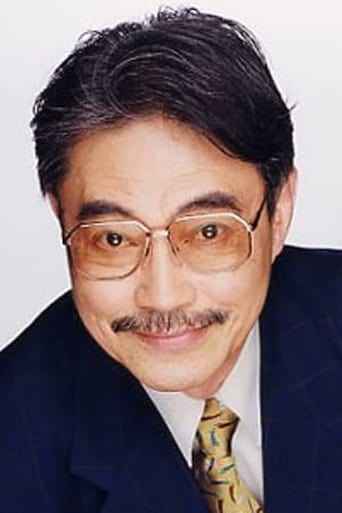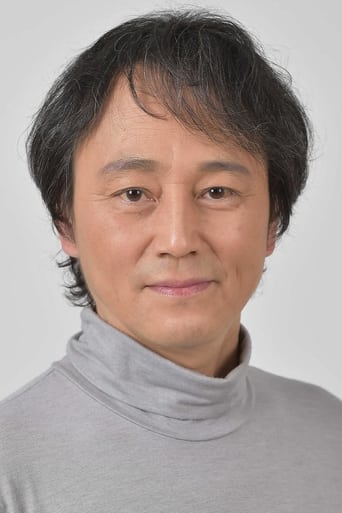bmoore07
Monster before Monster. That's what I thought as I bought Master Keaton, another anime of Naoki Urasawa, the show invented before his 2004 masterpiece. I checked out the main theme on YouTube, which was random, bland, and dull, but I still decided to watch the show because of what I mentioned before and because all the Master Keaton reviews were profoundly positive. I bought the first volume of the series for a dollar but, somehow, I ended up with the second. With that, I was introduced to this outrageously overrated, woefully written anime (and that's an understatement). The fact that I was ripped off has nothing to do with how I will review this show. Without further delay, here's my episode-by-episode analysis of volume 2 of Master Keaton.Ep.6 – "White Goddess""White Goddess" begins with Master Keaton borrowing a sheet from a stranger. Here I learn that this show's protagonist has one of the blandest and dullest voices imaginable. Not a great way to get viewers. Keaton then runs into his friend Anna, who is protecting an archaeological site from destruction. They reminisce on their college days (and mention Keaton's divorced wife) before confronting the antagonist of "White Goddess", an arrogant and undersized businessman with plans to destroy the site. Next, Keaton and Anna meet the antagonist's mother, who accompanies them on their excavation on the site. As the three explore further into this tomb, Anna reflects on her deceased mother, who used to inspire her daughter with heroic stories. The next day, Keaton shows Anna a technique involving water and soap, using this to stop the businessman's construction plans. The antagonist then receives a slap across the face from his mother, Keaton returns the sheet to the stranger, and he walks away, the "case" closed.(My thoughts: From what I've seen so far, Keaton has an overwhelming resemblance to Kenzo Tenma, the protagonist of Monster. Keaton is this exceptionally nice person but is a bit distant and mysterious, just like Tenma. The difference is that Tenma has more emotion and depth, making him a more likable person, someone you'd root for, and I don't think Keaton has that. And another thing, a mystery should have suspense, plot twists, and a cunning villain. "White Goddess" didn't have any of that. So far, I don't think Master Keaton is a mystery. I don't know what it is.)Ep.8 – "Negotiator's Rule"(I skipped Ep.7 because the title "Memories of Summer Pudding" sounds like nothing but more disappointment. Don't worry; I'll get back to Ep.7 later.)"Negotiator's Rule" kicks off with a bang, with this elderly woman called in the middle of the night, informed that her husband is kidnapped and demanded to pay an absurd amount of money to the kidnapper, the caller. Master Keaton is summoned to help free the woman's husband, a wealthy electronics manager, by negotiating with the kidnapper. The kidnapper codenames himself "Apollo" and calls the woman "Achilles" before demanding even more money (Keaton notes this and realizes the kidnapper is knowledgeable of Greek mythology. This point is never discussed or mentioned again in this episode.). The climatic moment of "Negotiator's Rule" is when Keaton persuades the woman to pretend to break down while talking to the kidnapper. The purpose is to make the kidnapper feel guilty and release the husband. Master Keaton saves the day (shocker), the husband is freed, and Keaton walks away, another case closed.(My thoughts: I'm happy that Master Keaton is becoming somewhat interesting but I'm extremely frustrated that the kidnapper's identity was never revealed. There was, however, a really obvious suspect. It was this grumpy employee of the husband, always noticeably nervous when conversing with Keaton. The suspect and the woman were both much better actors than Keaton. That's not saying much.)Ep.7 – "Memories of Summer Pudding"This episode is about Keaton's daughter forcing our perfect protagonist to get over his divorce and to get along with his womanizing dirtbag of a father. Neighbors re-unite, Keaton and his dad reminisce, and I can't make it halfway through the episode. You know how I said "Memories of Summer Pudding" sounds like disappointment? I was right.ConclusionThe anime's knight in shining armor, Master Keaton, is a man of many occupations: an archaeologist, an adventurer, an investigator, and a father (I think I'm missing some). While this makes Keaton a well-rounded person, it also makes him a flawed character. Taichi Keaton is the extremely one-dimensional, unbelievably boring, do-the-right-thing protagonist of a show with plot holes galore, of a mystery show devoid of acting, action, and mystery. What happened to that second volume of Master Keaton? That waste of a dollar is where it belongs, where it deserves to be – in the trash.
Brian Camp
"Master Keaton" is a Japanese animated TV series that offers serious storytelling, mature characters, and events and settings based firmly in the real world. As such, it should satisfy not only fans seeking a change of pace from the more popular anime fare of space opera, short-skirted HS girls, and dueling monsters, but also non-fans looking for well-told stories about a resourceful hero who uses his wits and extensive knowledge to solve a succession of genuinely intriguing cases. The half-English, half-Japanese Taichi Keaton is, by day, an insurance investigator for Lloyd's of London, but also an archaeology professor, and his diverse interests send him on cases all over the globe. A decorated army veteran who's occasionally compelled to use non-lethal force, Keaton tries his best to handle every problem with brains, not brawn. Each story is self-contained and the range of stories is designed to show the man's command of esoteric knowledge and the high degree of empathy required for dealing effectively with all sorts of people.The stories frequently require the hero to use his archaeological skills to peel away layers of information and history to get at the truth. Tastes, smells, sounds, and individual objects evoke memories which bring forth lost knowledge or provoke changes of heart in antagonists. In the end, it's all about rediscovering something lost, making something whole again and reuniting people who've been separated. A businessman in Germany seeks to locate the daughter he'd lost when he fled from East to West Germany 18 years earlier. In Soho's Chinatown, a young Englishman learns the art of Chinese cuisine from the lost recipes of Chinese revolutionary Sun Yat-Sen. A celebrated composer suffers writer's block when his hated father falls on hard times and only a particular melody can set things right for both of them. The aroma of a mint plant helps Keaton himself to understand his mother's return to England from Japan (and break-up with his father) when he was five.Nature plays an important part in many of these stories. A mountainous region of Japan is where a father searches for the son who ran away to free a pet hawk. The harvesting of grapes in the midst of a World War II battle is the key to making a French vineyard's only batch of perfect wine. A rose garden and a new breed of rose figure prominently in a murder mystery. Keaton's ability to survive in a harsh Chinese desert region saves a group of archaeologists who've run afoul of local muslims. Some stories are basic thrillers involving planted bombs, kidnapped businessmen, hostage crises, and the transport of a "Robin Hood"-type prisoner, with no police help, through the prisoner's home turf. There are even a few murder mysteries among the 25 or so episodes seen for review.However, the best stories in the series invariably involve family and history and digging through the past to understand the present, such as the one about the German father searching for his daughter and the one about Keaton probing his own family history. (Keaton's father and high school-age daughter make regular appearances.) One of the most fascinating tales in the series is told in "The Thistle Emblem," in which Keaton goes to Edinburgh to research a coat-of-arms insignia found in Japan and learns the story of a 17th century Scotsman who started a still-thriving distillery, but was then run out of the country by the English. Most of the endings are happy, although sometimes the past is no match for an unsympathetic, unstoppable future. The vineyard which created the perfect wine of 1944 will soon be transformed to make a more commercial mass-market wine.The far-flung settings provide opportunity for the background artists to recreate, in admirable detail, a wide range of picturesque settings from England to Japan to different nations of Europe and back to England (where a large number of the stories are set). The music has a European folk feel to it, with some nice Celtic flavor on occasion. Some episodes are better watched with the English dub track, others with the Japanese track. The English dubbing could be better (particularly that of the actor who voices Keaton), although the British accents for many of the characters are generally well handled.

